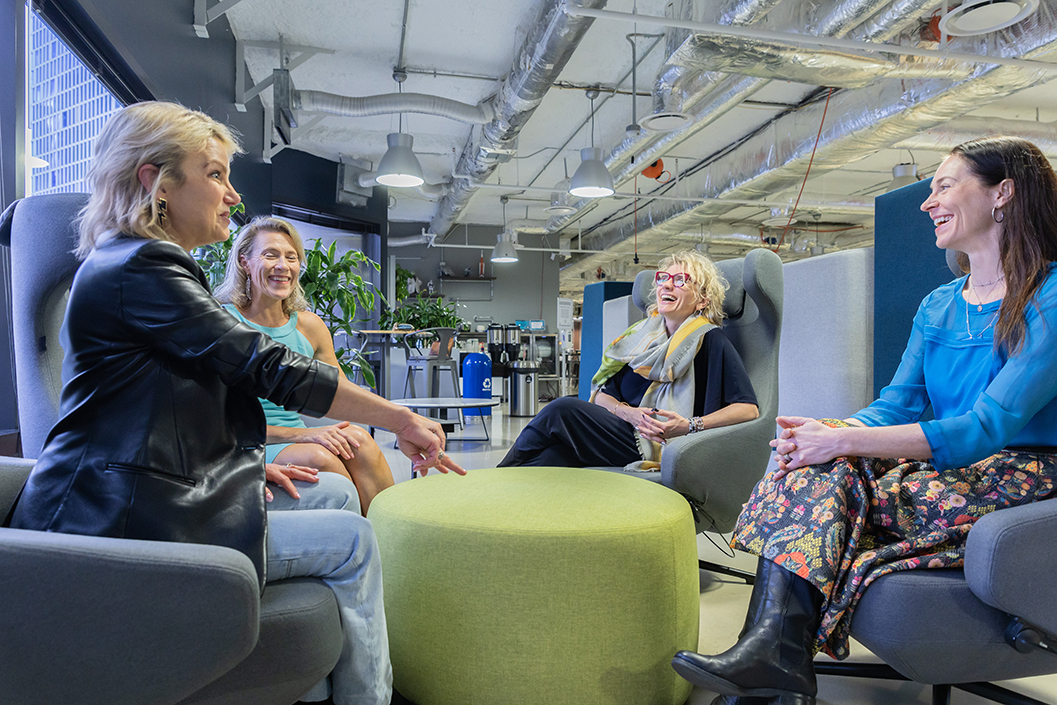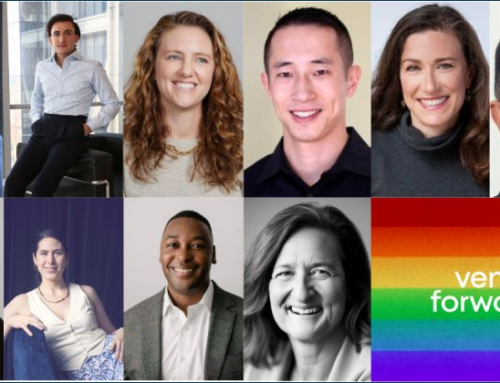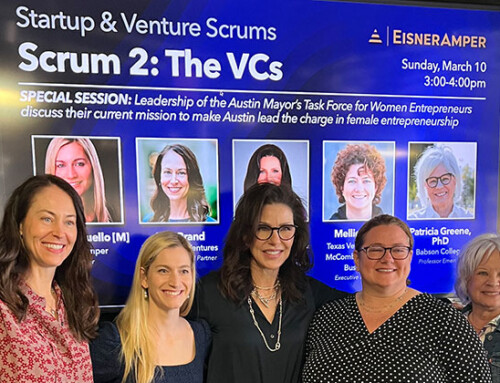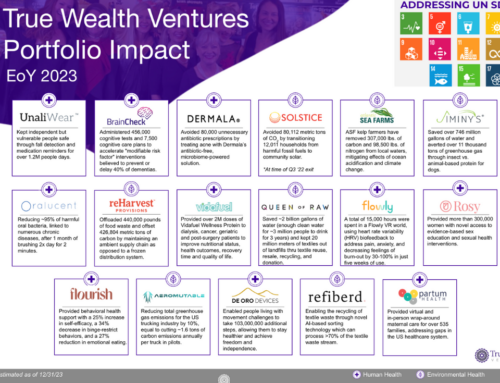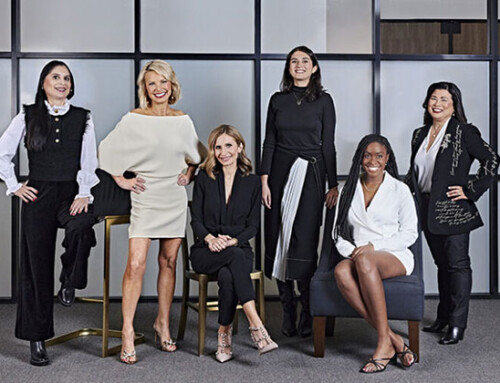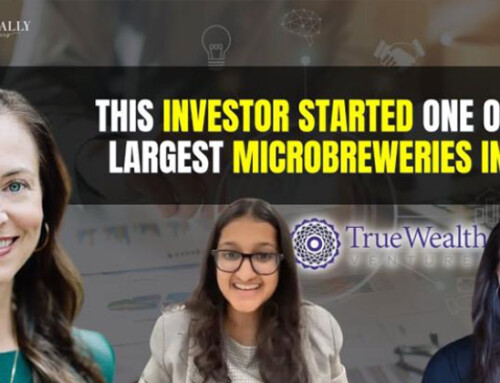Get a glimpse into how a physicist, yogi and celebrity legal expert are making waves in Austin’s venture capital scene.
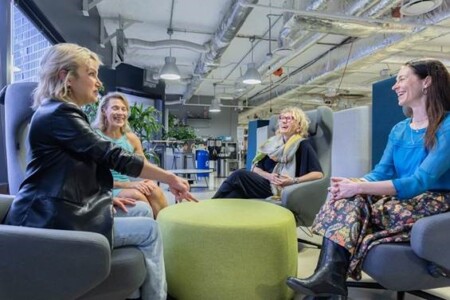
By Jenny Hoff, photos courtesy of each woman
Acelebrity legal commentator, a physicist from the former Soviet Union, a yoga instructor and philosopher—these are the backgrounds of some of Austin’s leaders in the venture capital world. While their varied life experiences already make them unique in this industry, what really sets them apart is their gender.
“Out of the couple hundred VCs I worked with around the country while I was with Deloitte, less than a handful were led by women,” says Emily Rollins, an accountant of 30 years and a current member of multiple boards in Austin. “It’s changing, but slowly.”
According to Crunchbase, there are 159 venture capital organizations in Austin. Most have at least two general partners, which is the highest level of leadership in the firm—the ones who make the final decision on which entrepreneurs to invest in. Of all those general partners, approximately eight are female.
“I would say about 5% of general partners making investment decisions are women,” says Kerry Rupp, former Austin Woman magazine cover woman and co-founder of True Wealth Ventures, a venture capital firm that invests strictly in female-owned businesses. “Is that better than before? Maybe. But it’s not 50%.”
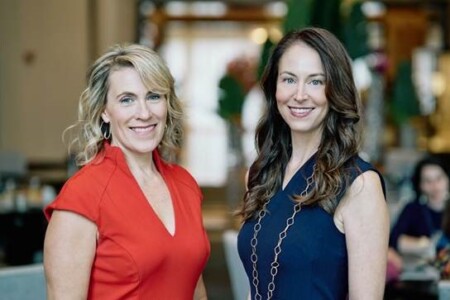
Kerry Rupp (left) and Sara Brand
Rupp and her business partner, Sara Brand, started True Wealth Ventures after extensive research showed female-led businesses weren’t just good for society, but good for the bottom line, with women possessing skills needed for company longevity and stability. They wanted to focus their investments on female-led businesses that tackled consumer health and sustainable products and technology.
“We started fundraising in 2016,” says Rupp. “Not a single business we have invested in has failed, which is very rare in the venture capital world.”
While Rupp and Brand are working to prove investing in women isn’t charity but, rather, smart for business, Rupp hopes it’s not a torch they’ll have to carry for long.
“We would like this explicit need to have gender diversity as a differentiation to go away,” she says. “People are seeing having diverse teams bring better team performance. Boards are starting to recognize it. We hope that part of our thesis becomes obsolete.”
Achieving that goal starts at the top.
From Physicist to Venture Capitalist
At 20 years old, Dr. Oksana Malysheva never would have dreamed of the life she has today. Studying physics at the Moscow Institute of Technology, she planned for a life of pure science and a small stipend as a physicist in the communist Soviet Union.
Then the Soviet Union collapsed, and her life plans with it.
“Studying physics was still my dream, but suddenly there wasn’t even continuous electricity,” she recalls. “I knew I had to come to the U.S. to pursue it.”
Taking tests and filling out applications that cost more than her father earned for his monthly stipend, Malysheva finally found herself in the U.S., pursuing her Ph.D. in physics at the University of Pennsylvania. With no knowledge of entrepreneurship, markets or business in general, she started reading the {Financial Times} on her lunch breaks and imagining what it would be like to run the companies she read about.
By the time she was finished with school, she knew a life at a science institution wouldn’t be enough. So, she joined McKinsey as a consultant and got an inside look from the best in the business on how companies thrived and failed.
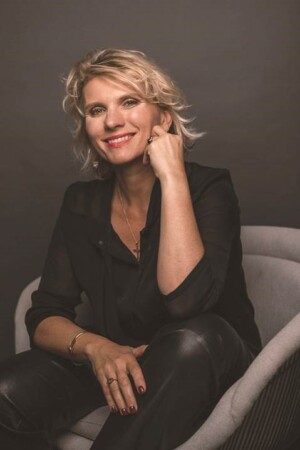
Dr. Oksana Malysheva
“If you were to look at my journey, there are a lot of twists and turns,” says Malysheva. “But my principles were to always surround yourself with the best people and do things you truly love. Using that algorithm, you will find success.”
From McKinsey, Malysheva found herself taking another unexpected turn—joining the marketing team for Motorola and being a part of taking cell phones into the future with the introduction of the Razr. Inspired by Motorola’s CMO, Geoffrey Frost, who had come from Nike, Malysheva decided she would learn the most by once again working with the best.
“He wanted the phone to be the expansion of the human potential,” says Malysheva. “I followed this human because he was very magnetic for his vision for the world. We were a wild bunch of people that did not fit in with the rest of the corporate world.”
Now, as managing partner of Sputnik ATX, Malysheva and her business partner, Joe Merrill, are always on the hunt for other visionaries looking for the expansion of human potential—the kind of people who don’t fit in with the rest.
“We wanted to become a home,” she explains. “If you’re a nerd with a life-changing idea, we can teach you how to expand and sell.”
Each venture capital firm has its own thesis on what sets them apart for investors, on what kind of businesses they’re best fit to help grow. Sputnik ATX is dedicated to mentoring and training the businesses it invests in to ensure smart growth and success. Due to the intense training and office space they provide at their Austin building, they only invest in five to seven companies at a time. For those five spots, they have more than 1,200 entrepreneurs submitting applications.
“I get the cream of the crop applying,” says Malysheva. “Part of that is because we market in areas other firms don’t go to. It’s actually a really smart strategy to go out and find diverse founders. It’s not our mandate, but it’s smart to attract a large pool of people and let the best founder win.”
Of the businesses they’ve backed, Malysheva says about 40% are led by women. The diversity goes well beyond that, with founders from various ethnic backgrounds.
Despite VCs like Malysheva’s making a concerted effort to attract a diverse pool of applicants, the number of female-led businesses that get VC funding overall is still abysmally low. Part of that could come down to culture. According to a Harvard Business Review study, men are more likely to get asked about growth potential, while women often find themselves having to defend their ideas. Alternatively, VC leaders say men are also more likely to focus on the positive when pitching to investors, while women are more likely to concentrate on the challenges that could arise.
Both are needed, but when it comes to getting funded, optimism wins.
“Venture capital firms are focused on what could go right,” says Malysheva. “We consciously coach every woman who comes to us to remember to address what could go right in the business and not just the risk. You have to talk about how big it could be and how big you could make it.”
In Malysheva’s experience, most men in the VC world are supportive of female founders who bring in a great idea, solid numbers and a tight presentation. To increase the numbers of female-funded businesses, it’s a two-way street. Women need to have the courage to apply, and not use the low numbers of women in leadership as an excuse to not enter the arena.
“Listening to headlines is not useful, and often people use it as a justification for their own laziness,” says Malysheva. “We’re there. So, you can no longer say it’s impossible.”
Overcoming the Odds
Seeing possibilities is a trait that has served Capital Factory general partner Lawton Cummings well. Like Malysheva, her career has taken unexpected turns with no clear path to venture capital. Twenty years ago, with a husband in the military and two small children, Cummings focused on her law career, publishing articles and getting tenure to teach at George Washington University. She liked the security of a stable career. Her outgoing personality coupled with her legal expertise got her a spot as a FOX News legal analyst, offering commentary on legal issues for 10 years. She had hit the pinnacle in her industry and had a loving husband and beautiful children to boot.
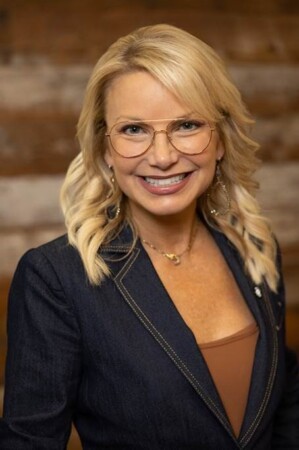 Lawton Cummings says before approaching a VC, you should have answers to the four “why” questions.
Lawton Cummings says before approaching a VC, you should have answers to the four “why” questions.
- Why this product?
- Why are you the right person to head the business and bring it to market?
- Why now?
- Why are you asking this investor?
Then she got cancer. Going through treatment as her husband transitioned from the military to entrepreneurship, she took a break from work and depended on her positive outlook and faith to get her through the scariest time of her life.
“At the end of my treatment, I knew I was getting better, and I had to decide what to do next,” she says. “I was risk averse, and I was good at law, so it seemed like the easiest option.”
But when she got cancer a second time, she realized it was time to change course. Living in Austin at this point, Cummings had developed a fascination with artificial intelligence and started angel investing in tech companies. She was asked to join Austin 100, a group of thought leaders in the city, and didn’t think it odd that out of the 100 members, she was one of only seven women. Coming from a male-dominated industry, she was used to it.
Then the #MeToo movement happened.
“I decided then that I was going to work to get every badass woman I could find and bring them into the group,” recalls Cummings. “Screw this safety stuff, I was ready to own my power.”
Through her efforts, Austin 100 doubled in size and changed its composition to 50% women.
About a year later, a general partner with Notley investment group asked her to come on as a partner and professional investor.
“I didn’t think I knew enough to be an institutional investor,” she says. “But he said, ‘Don’t worry; what you don’t know we’ll teach you.’ That was really a pivotal moment, because someone needs to get you a spot at the table.”
After two years of intense learning as a limited partner, Cummings decided she wanted a position at a VC that would allow her to get more of the upside and make the big decisions. In other words, she was ready to move from a seat at the table to the head of it. She landed at Capital Factory.
While she loves investing in all types of founders and great ideas, she gets most excited when she has a chance to champion women.
“There’s a big difference between recommending someone and championing them,” she says. “You need a champion on the outside to get your application across our desk, but you also need a champion inside. That’s where I come in.”
Like Sputnik ATX, Capital Factory doesn’t have a mandate to specifically invest in women. But Cummings also sees it as a profitable endeavor. Nevertheless, the number of female-founded businesses that make it to her desk is much smaller than male-founded. She wants more women to feel confident in selling their ideas, painting the big picture for investors and believing in their idea’s potential.
“Know your numbers, don’t overvalue your company and don’t bluff your way through it,” advises Cummings. “But you need to have a lot of confidence. Turn mindset-limiting questions into growth answers.”
Don’t be scared to share your personal story and philosophy. You’re selling yourself as much as the product.
A Yogi Comes Home
On a phone call from London, while traveling with her 12-year-old son, Genevieve Gilbreath, co-founder of the VC firm Springdale Ventures, laughs when she thinks of her journey to the world of venture capital.
“If you would have asked me 15 years ago if I saw myself running a VC, I would have said, ‘What’s that?’”
Gilbreath was perfectly happy living far from her native Texas 15 years ago, teaching yoga while studying Sanskrit and philosophy in India. A vegetarian since she was 12, she was passionate about health and wellness and provided private wellness consulting as a way to earn extra income. Travel, plants and peace were her world. But soon she came to see the need for more wellness options in the consumer space and started a business selling plant-based supplements.
Her experience in successfully creating and running a business led to more partnerships, including working with Princeton University to build a one-year bridge program to India for students. She had her life, and it was a good one, complete with a partner and a baby on the way.
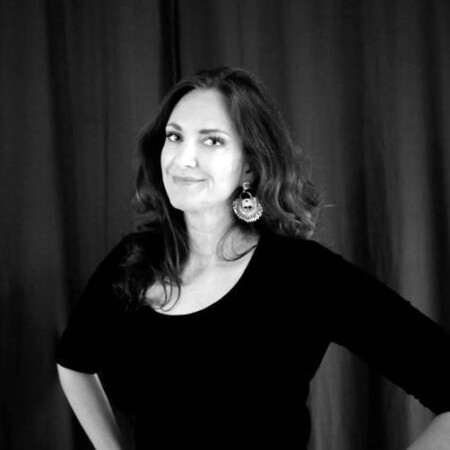
Genevieve Gilbreath
Shortly after her son was born, however, she and his father separated and Gilbreath’s vision for her future changed. She moved back to Texas with baby Kapila Max in tow (named for the third Buddha in the Hindu religion) and used what she had learned in India to create success in the States. Her instantly dissolving herbal supplement, Herbal Zap, based on Ayurvedic principles, soon hit the market.
Seven years later, she started her own venture capital fund, backing consumer brands like Goodles (a brand of healthier, more high-protein versions of traditional mac and cheese), Cece’s Veggie Co. and Lumen. Many of her businesses are run by women, creating products that support Gilbreath’s lifelong goal of a healthier, more holistic world. Most importantly, they’re creating products customers want.
While she wants to encourage entrepreneurs to follow their ideas and bring them to fruition, she supports the Silicon Valley mantra to “fail fast” so you don’t expend all your energy on creating a product or service that the market isn’t demanding. “With any business, try and kill it before it kills you,” she advises.
Though the number of VC-backed female-founded businesses has a lot of room to grow, Gilbreath believes with more women at the head of the table and in the boardrooms of companies and organizations, more female founders will get noticed and get a chance to make their businesses grow.
“The more diverse the allocators are, the more chances female-founded companies will get funded,” she says. “That’s the biggest difference that will change things.”
Rupp, Brand, Malysheva, Cummings, Gilbreath and the other few female VC heads in Austin are doing what they can to change the tide, but they also need the help of women entrepreneurs who are willing to show up and fight for a piece of the VC pie.

